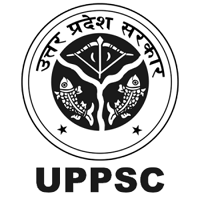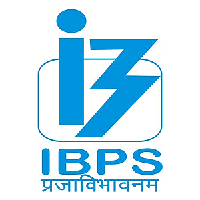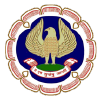
Uttar Pradesh Provincial Civil Services (UP PCS)
Based on the latest pattern | Detailed Analysis
Sample Test Paper-1
 100 Questions
100 Questions 100 Marks
100 Marks
Uttar Pradesh Provincial Civil Services (Prelims) Mock Test 1
 180 Questions
180 Questions 400 Marks
400 Marks 240 Mins
240 Mins
Uttar Pradesh Provincial Civil Services (Prelims) Mock Test 2
 180 Questions
180 Questions 400 Marks
400 Marks 240 Mins
240 Mins
Uttar Pradesh Provincial Civil Services (Prelims) Mock Test 3
 180 Questions
180 Questions 400 Marks
400 Marks 240 Mins
240 Mins
Uttar Pradesh Provincial Civil Services (Prelims) Mock Test 4
 180 Questions
180 Questions 400 Marks
400 Marks 240 Mins
240 Mins
Uttar Pradesh Provincial Civil Services (Prelims) Mock Test 5
 180 Questions
180 Questions 400 Marks
400 Marks 240 Mins
240 Mins
Uttar Pradesh Provincial Civil Services (UP PCS) exam is organized by the Uttar Pradesh Public Service Commission (UPPSC). This exam is held for the recruitment of eligible applicants for numerous posts in the Ministries and departments in Government of Uttar Pradesh.This exam is a state level exam and is held in offline mode. Desiring applicants can apply for the exam in online mode through the official website. This exam is organized yearly.
Uttar Pradesh Provincial Civil Services (UP PCS) Conducting Body: Originated on 1 April 1937 the Uttar Pradesh Public Service Commission is the state agency which is authorized to organize the Civil Services Examination for entry level appointments to the various Civil Services of Uttar Pradesh.
Uttar Pradesh Provincial Civil Services (UP PCS) Important Dates 2021:
|
Events |
Dates |
|
Registration Date |
21/04/2020 |
|
Application Date |
Will be updated soon |
|
Admit Card |
Will be updated soon |
|
Preliminary Exam Date |
Will be updated soon |
|
Mains Exam Date |
26/09/2023 29/09/2023 |
|
Result Date |
Will Be Updated Soon. |
|
Mode to apply |
Online |
|
Link to apply |
|
|
Official Notification |
Uttar Pradesh Provincial Civil Services (UP PCS) Selection Procedure: The selection procedure for the UP Civil Services exam is as follows:
The exam is held in 3 stages:
• Preliminary Exam
• Mains Exam
• Interview
The selection of the candidates purely depends on merit which is based on the performance in the above-mentioned rounds.
Uttar Pradesh Provincial Civil Services (UP PCS) Exam Pattern:
Preliminary Exam: The preliminary exam involves 2 papers each of 200 marks. The Paper 2 is qualifying in nature and the applicants are selected on the basis of their marks obtained in Paper 1 for the next round. The duration of each of the papers is 2 hours. Negative marking will be done of 0.25 marks for each wrong answer.
|
Paper |
Name |
Nature of the paper |
No. of Questions |
Marks |
Time Duration |
|
Paper-1 |
CSAT |
Qualifying(33% marks) |
80 |
200 |
2 hours |
|
Paper-2 |
General Studies |
Considered for merit. |
100 |
200 |
2 hours |
Mains Exam: Qualified applicants from the preliminary exam are allowed to sit for the mains examination. The Mains exam is a conventional pen paper based descriptive examination. There are as many as 7 papers in the Mains Exam. There is no negative marking for the mains exam .The exam pattern is given below:
|
Paper |
Subject |
Type of Exam |
Total Marks |
Time Duration |
|
Paper-1 |
General Hindi |
Descriptive Type |
150 |
3 hours |
|
Paper-2 |
Essay |
Descriptive Type |
150 |
3 hours |
|
Paper-3 |
General Studies-I |
Descriptive Type |
200 |
2 hours |
|
Paper-4 |
General Studies-II |
Descriptive Type |
200 |
2 hours |
|
Paper-5 |
General Studies-III |
Descriptive Type |
200 |
2 hours |
|
Paper-6 |
General Studies-IV |
Descriptive Type |
200 |
2 hours |
|
Paper-7 |
Optional Subject (Paper-I) |
Descriptive Type |
200 |
3 hours |
|
Paper-8 |
Optional Subject (Paper-II) |
Descriptive Type |
200 |
3 hours |
|
Total |
------- |
------- |
1500 |
-------- |
• Interview: The interview consists of 100 marks. The interview is held with the purpose to access the awareness, intelligence, problem-solving ability and the suitability of the applicant towards the services.
Uttar Pradesh Provincial Civil Services (UP PCS) Eligibility Criteria:-
• Nationality: Applicant must be a citizen of India
• Age Limit:Age limit required is between19 to 36 years.
• A resident of Nepal,
• A resident of Bhutan,
• A refugee from Tibet who travelled to India with the purpose of permanently settling
• People who travelled from Myanmar, Pakistan, Sri Lanka, and East African Countries, but must be of Indian origin, with the purpose of settling in India permanently.
Educational Qualification: Applicant must have a graduation degree in any discipline with a second division in marks.
Uttar Pradesh Provincial Civil Services (UP PCS) Syllabus: For Prelims and Mains
General Studies
• Current Affairs
• History of India
• Indian and World Geography
• Indian Polity & Governance -Constitution
• Economic and Social Development
• Issues regarding Environmental ecology, Bio-diversity and Climate Change
• General Science
CSAT
• Comprehension
• Interpersonal skills
• Logical Reasoning and Analytical Ability
• Decision making
• General mental ability
• Elementary Mathematics (Class X level)
• General English (Class X level)
• General Hindi (Class X level).
Essay
There are three sections from which applicant select the topic for essay. One topic from each section is to be selected and applicants are required to write essay in not more than 700 words. The topic of the Essay is based on the following subjects:
Part A:
• Literature and Culture
• Social sphere
• Political sphere.
Part B:
• Science
• Environment and Technology
• Economic Sphere Agriculture, Industry, and Trade.
Part C:
• National and International Events.
• Natural Calamities, Landslide, Earthquake, Deluge, Drought, etc.
• National Development programs and projects.
General Studies I:
• History of Indian Culture
• Modern Indian history
• The Freedom Struggle
• Post-independence
• History of the world- the French revolution, the Industrial revolution, World Wars, Socialism, Nazism, Fascism, etc.
• Indian Society and culture.
• Role of Women in society
• Meaning of liberalization, privatization, and globalization and their effects
• Social empowerment, communalism, regionalism & secularism.
• Distribution of major natural resources of World and India
• Physical Geography-Cyclone, Earthquake, Glaciers, Ocean Currents, Tsunami, Volcanic activity, and Winds.
• Oceanic resources of India
• Human Refugee-Migration problem of the World with a focus on India.
• Frontiers and boundaries
• Population and Settlements
• Knowledge of Uttar Pradesh - Art, Architecture, Culture, History, Heritage, Festival, Folk Dance, Literature, Regional Languages and Tourism.
• Knowledge of U.P.- Geography- Human and Natural Resources, Climate, Soils, Forest, Wild Life, Mines and Minerals, Sources of Irrigation.
General Studies II:
• Indian Constitution
• Finance Commission role
• Separation of powers
• Comparison of the Indian Constitutional Work with other major Democratic Countries.
• Parliament and State legislatures
• The Executive and The Judiciary and their functioning and structure
• Appointment procedure of Constitutional posts and their responsibilities.
• Statutory, regulatory, and various quasi-judicial bodies including NITI Aayog
• Government policies
• Development processes- the role of Non Governmental Organizations (NGOs), Self Help Groups (SHGs)
• Welfare schemes
• Issues regarding development and management of Social Sector/Services relating to subjects of Health, Education, Human Resources.
• Important aspects of governance
• Role of Civil Services in a democracy
• India and its relationship with Neighbouring Countries
• Groupings and Agreements related to India and/ or affecting India's interest.
• The political effect of Developed and Developing countries on India's interests- Indian diaspora.
• Important International Institutions, Agencies their structure, mandate, and functioning.
• Knowledge of Uttar Pradesh related to Political, Administrative, Revenue, and Judicial System.
• Current Affairs of Regional, State, National, and International importance.
General Studies III:
• Economic planning in India
• Issues regarding Poverty, Unemployment, Social justice
• Government Budget
• Major Crops, Types of irrigation and irrigation systems, storage, transport, and marketing of agricultural produce and technology.
• Farm subsidies and minimum support price
• Distribution System, Issues of buffer stocks and Food Security
• Food processing and related industries in India
• Land reforms in India Post Independence.
• Liberalization and Globalisation
• Infrastructure: Energy, Ports, Roads, Waterways, Airports, Railways, etc.
• Science and Technology.
• Information and Communication Technology (ICT), Space Technology, Nano- technology, Microbiology, Biotechnology, Energy resources, Computers
• Environmental security
• Disaster mitigation and management.
• International Security.
• India's internal security
• Security forces
• Knowledge of Uttar Pradesh Economy
• Agriculture, Animal Husbandry, Horticulture, and Forestry.
• Civil Defence with special reference to U.P.
General Studies IV:
• Ethics and Human Interface.
• Attitude: Moral and Political Attitude
• Aptitude and foundational values for Civil Service
• Emotional Intelligence
• Contributions of Philosophers and Moral Thinkers from India and the World
• Corporate Governance.
• Governance: Philosophical basis of governance and Case study regarding the same.
Uttar Pradesh Provincial Civil Services (UP PCS) FAQs:
Ques 1. How can an applicant apply for the Exam?
Ans. By online mode through Official website.
Ques 2. What precautions should be taken by a candidate while filling up the Online Application Form?
Ans. Please read the instructions attentive before filling up the Online Application Form.
Ques 3. Does a candidate edit the details after submission of the application?
Ans. A candidate can not edit any information after submission of the application in the Commission.
Ques 4. What should be the size of the scanned Photograph and Signature?
Ans. The size of the scanned photograph and signature should not be more than 50 kb each.
Ques 5. Can candidates belong to other states apply for UP PSC?
Ans. Yes, the candidate belonging to other states are eligible to apply but through the general category. Reserve category quota applies to reserved candidates of UP only.
Ques 6. What is the educational qualification for the exam?
Ans. Any graduate from any recognized university is eligible for UPPSC except for some posts which require some special qualification.
Ques 7. Is there any reservation for OBC/SC/ST in UP PSC exam?
Ans. Yes, there is reservation for OBC/SC/ST.
Ques 8. Is there any reservation for Female candidates in UP PSC?
Ans. Yes, there is a reservation of 20% for female candidates.
Ques 9. Is OBC/SC/ST of other states are eligible for reservation?
Ans. No, Only OBC/SC/ST candidates of Uttar Pradesh are eligible for reservation. All candidates belonging to other states are treated as general candidates.
Ques 10. Is the Hindi language mandatory in secondary level to be eligible for UP PSC?
Ans. Yes, Hindi at the higher secondary level is an essential qualification.
Ques 11. Is Hindi language paper in Mains examination of qualifying nature?
Ans. No, the Hindi language paper in the Mains examination is not of a qualifying nature. It carries 150 marks and these marks get considered while preparing the merit list.
Ques 12. How many papers are there in the Mains examination?
Ans. There are a total of 8 papers in the Mains examination from which 2 are GS papers, 2 papers from 1st optional, 2 papers from 2nd optional, 1 paper of Hindi language, and 1 paper of Essay.
Ques 13. Are all papers in the main examination of Descriptive nature?
Ans. No, all papers in the Mains exam are not of Descriptive nature. Both GS papers are objective type with no negative marking and the remaining all are Descriptive.
Ques 14. Is there any negative marking in the exam?
Ans. Yes there is a provision of negative marking for Paper I. 1/3rd of the total mark allotted to that question gets deducted for each wrong answer
Ques 15. Can a PCS be promoted to IAS?
Ans. Yes, PCS officers can become IAS officers providing they are fulfilling the requirements of UPSC.
CONCLUSION: Applicants willing to make their careers in the Government of Uttar Pradeshhave a good opportunity as this exam is held for the recruitment of eligible applicants for various posts. Aspirants must take the benefit of this opportunity by preparing well for the exam. Applicants are advised to visit the official website regularly for future updates. The team ofestudentbookwishes you all the best for your upcoming future.

.jpg)

.jpg)

.jpg)
.jpg)
.jpg)
.jpg)


